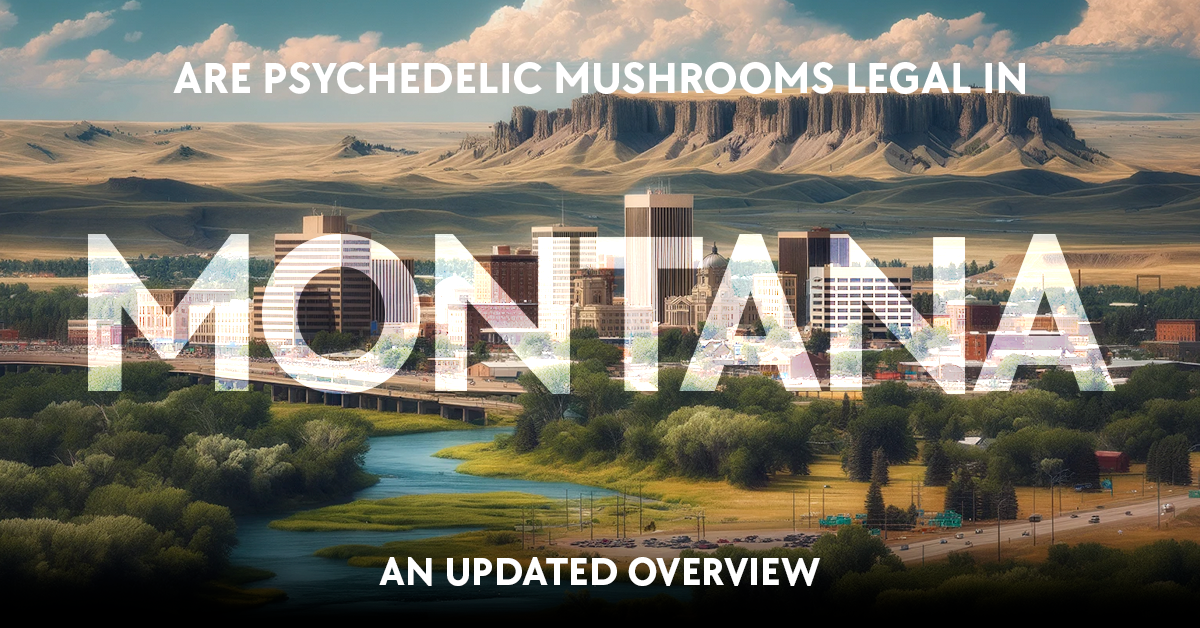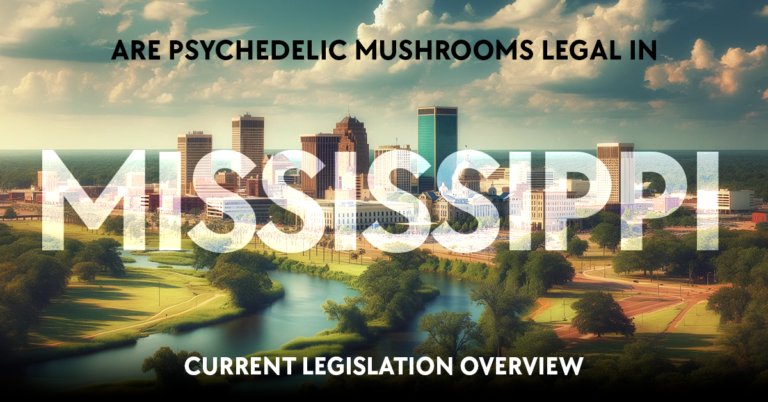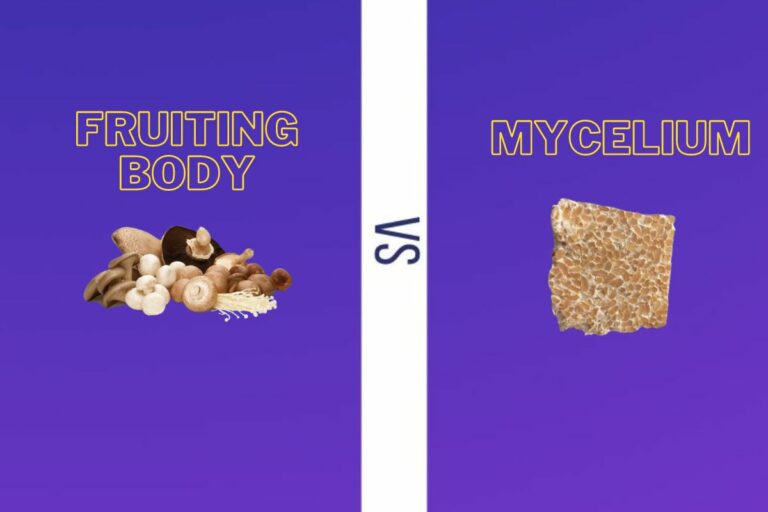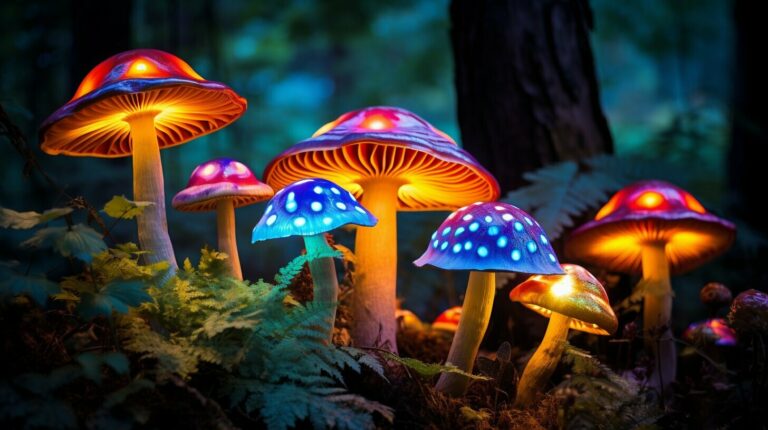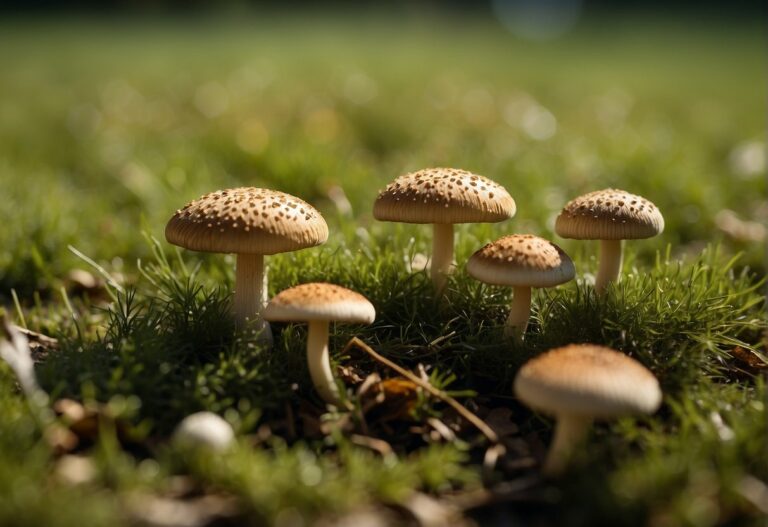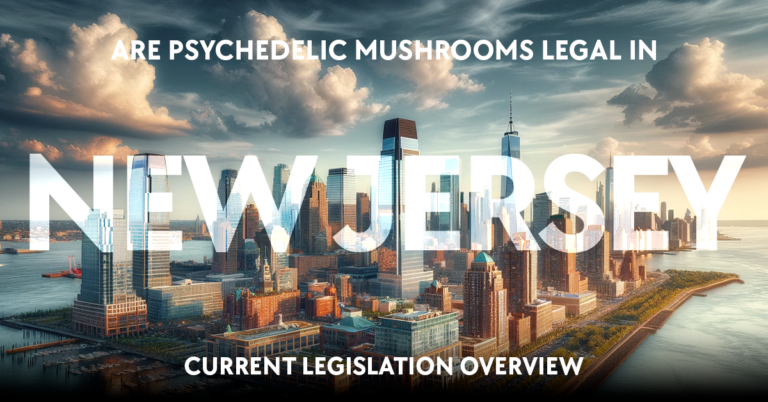When you’re investigating the legal status of psilocybin mushrooms—commonly referred to as “magic mushrooms“—in the United States, you’ll find a patchwork of laws that vary significantly from state to state. In Montana, psilocybin mushrooms are currently classified as a Schedule I controlled substance, which places them in the category of drugs deemed to have a high potential for abuse with no accepted medical use and a lack of accepted safety for use under medical supervision.
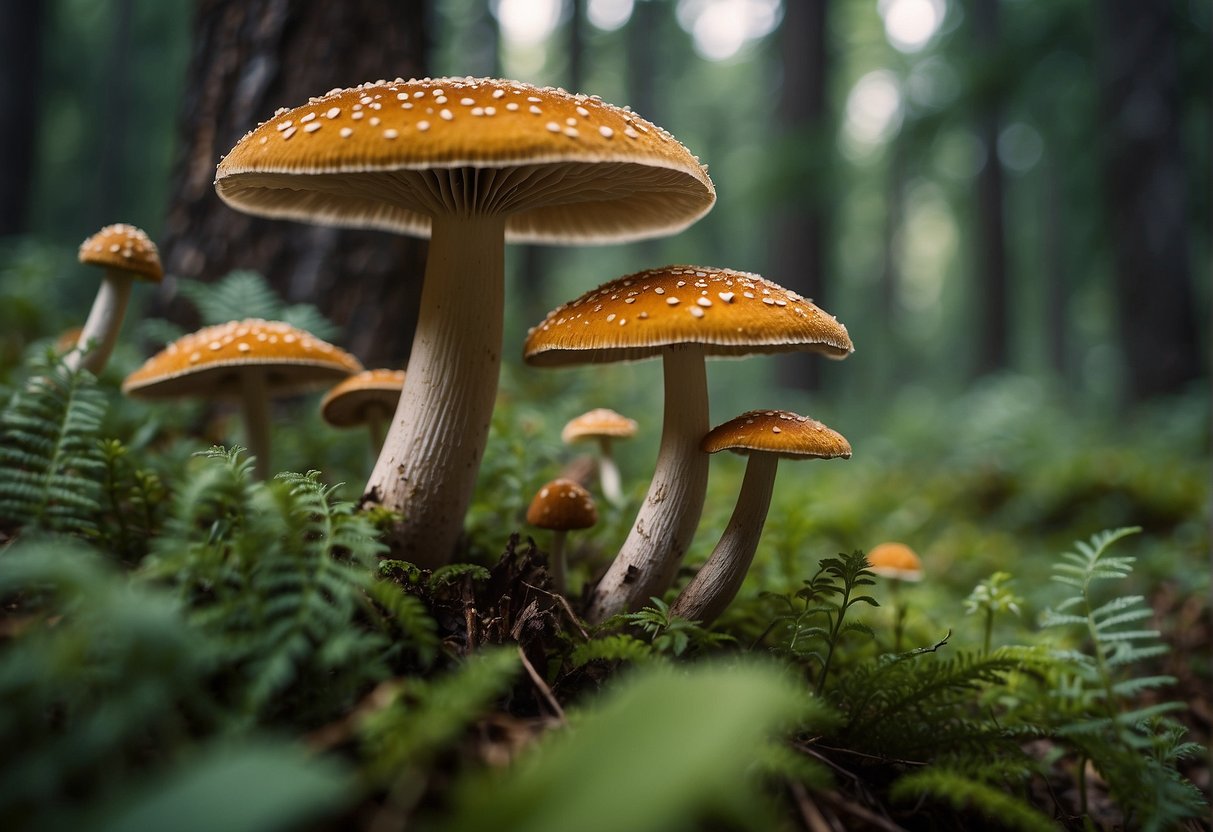
The use of psilocybin mushrooms for any purpose, including mental health therapy, is illegal in Montana. Despite a growing interest in the potential therapeutic benefits of psychedelics, which has led to legislative reforms and decriminalization in select jurisdictions within the United States, psilocybin remains unauthorized for legal use within the state. This contrasts with movements in some regions advocating for legal mechanisms to permit the medical application of psychedelics under certain conditions.
If you’re considering the use of psilocybin for health reasons or curious about the laws in Montana, it is crucial to stay informed about the current legal framework. As of now, possessing, using, or distributing psilocybin mushrooms can result in significant legal repercussions in Montana. It’s also worth noting that while there have been discussions and proposals for reform at both state and federal levels, no legal changes regarding psilocybin have been enacted in Montana.
Legality of Psychedelic Mushrooms in Montana
Table of Contents

Understanding the legal status of psychedelic mushrooms in Montana is crucial given their classification as a Schedule I controlled substance. This section breaks down the current laws, potential penalties, and any recent legislative changes concerning their use and possession.
Current Laws and Regulations
In the state of Montana, psychedelic mushrooms, due to the active compound psilocybin, are classified as a Schedule I controlled substance. This means they are deemed to have a high potential for abuse with no accepted medical use, making their manufacture, distribution, and possession illegal. If you’re found with these substances, you are likely to face significant legal consequences.
Penalties for Possession and Use
Penalties for the possession and use of psychedelic mushrooms in Montana are steep. If you are caught with any amount, it could be considered a felony offense. Penalties may include imprisonment, with the duration depending on the quantity possessed, and heavy fines. An arrest for possession of Schedule I substances also results in a criminal record, which can impact your future employment and educational opportunities.
- Possession: Felony charge, potential incarceration and fines.
- Use: Charges vary, potential for arrest and legal repercussions.
Recent Legislative Changes
Although recreational and medical use remains illegal, discussions around decriminalization and legalization of psychedelic substances have gained traction nationally. However, to date, there have been no substantial state-level reforms in Montana regarding the legal status of psychedelic mushrooms. Legislation can evolve, so it’s important to stay informed about any future changes that might alter the legal landscape.
Psilocybin Mushrooms and Mental Health
https://www.youtube.com/watch?v=UAvLWjpcb2Q&embed=true
Psilocybin mushrooms have been the subject of increased scientific study regarding their potential to treat a variety of mental health conditions. Researchers are examining the efficacy and safety of psilocybin—the psychoactive component in these mushrooms—in conditions such as depression, anxiety, and PTSD.
Research on Psilocybin and Mental Health
Recent research points to promising signs that psilocybin may be a valuable tool in mental health treatment. A body of clinical studies shows that when administered under controlled conditions, psilocybin can lead to significant and lasting improvements in mood and psychological well-being.
- Focus on Depression: Studies have found that psilocybin therapy can lead to a rapid reduction in symptoms of depression, with some participants experiencing improvements lasting several months post-treatment.
- PTSD and Anxiety: There’s increasing evidence that psilocybin can alleviate PTSD symptoms and reduce anxiety, particularly in life-threatening illness and end-of-life distress.
Therapeutic Benefits
The therapeutic benefits of psilocybin are linked closely to its ability to promote neuroplasticity, meaning it may help your brain form new connections. This can manifest as:
- Improved Mood: You might experience mood enhancement and a renewed sense of hope.
- Cognitive Flexibility: It is suggested that psilocybin can increase cognitive flexibility, potentially helping you to break out of negative thought patterns.
Clinical Trials and Medical Use
Clinical trials are essential steps in verifying psilocybin’s safety and efficacy in mental health treatment:
- FDA Approval: The FDA has granted Breakthrough Therapy designation for psilocybin therapy for treatment-resistant depression, expediting the development process.
- Ongoing Studies: Numerous clinical trials are underway to ascertain the full scope of psilocybin’s medical use in therapeutic settings and to establish standardized dosing regimens.
*Please note that the legal status and availability of psilocybin for medical use will vary by location. Always consult your local legislation and a healthcare provider regarding the current status of psilocybin’s legality and its potential use in mental health treatment.
Psychedelic Decriminalization Movement

The shift in policies concerning psychedelic substances across various regions in the United States signifies a growing decriminalization movement. This section breaks down the differences between decriminalization and legalization, identifies cities and states at the forefront of this movement, and discusses the implications for research.
Decriminalize vs Legalize
Decriminalization means you’re less likely to face criminal charges for possession of small amounts of psychedelic mushrooms. However, it does not equate to legalization, which would allow regulated sales and safe consumption spaces. Decriminalization reduces penalties but doesn’t create a legal market, while legalization fully allows and regulates the use of these substances.
Cities and States Leading Decriminalization
Several states and cities have taken steps towards the decriminalization of psychedelic substances. Here is a brief list:
- Oregon: First state to decriminalize the possession of small amounts.
- California: Cities like Oakland and Santa Cruz have adopted decriminalization policies.
- Colorado: Denver led the decriminalization initiative for psychedelic mushrooms.
- Other areas like Ann Arbor, Washington D.C., and Santa Cruz have also joined this movement.
Impact of Decriminalization on Research
Decriminalization efforts are positively influencing research into psychedelics. Easier access to these mushrooms for scientific studies can help uncover medical benefits. For instance, in Oregon and municipalities that have decriminalized, researchers have been afforded more freedom to investigate psychedelics’ therapeutic potential.
Comparison with Other Substances and Locations
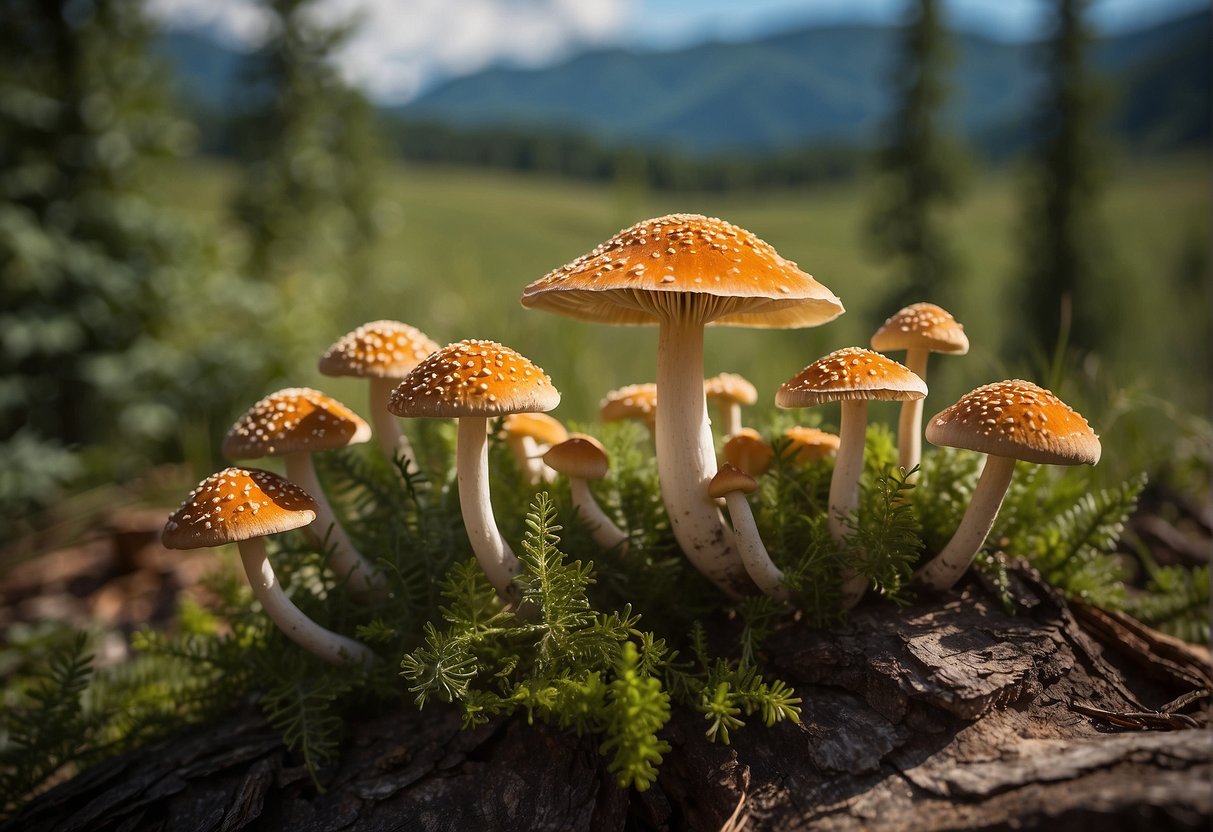
In the United States, the legal status of psychedelic substances varies widely from one state to another, and compared to other controlled substances. This means that where you live plays a significant role in the legality of psilocybin mushrooms and how they stack up against other drugs.
Psilocybin vs. Other Controlled Substances
Psilocybin, the active compound found in psychedelic mushrooms, is classified as a Schedule I drug under federal law. This places it in the same category as LSD, DMT, MDMA, and heroin, implying the government sees no medical use and a high potential for abuse. In contrast, ketamine is a Schedule III substance, considered to have less potential for abuse and acknowledged medical uses.
In states like Oregon and Colorado, efforts have been made to change the legal status of psilocybin. Oregon has pioneered this shift by legalizing the supervised use of psilocybin for therapeutic purposes. Colorado has moved towards decriminalization of psilocybin, although it remains illegal under federal law. Other states, such as California and Maine, have seen similar movements pushing for decriminalization or legalization of psilocybin, reflecting a growing trend of re-evaluating the therapeutic potential of psychedelic substances.
Legal Perspectives from Different States
When contrasting Montana with states paving the way for psychedelic reform, such as Oregon, it’s clear there are complex legal landscapes across the United States. Montana has not made moves to decriminalize psilocybin but considering changes elsewhere, the future of psychedelic mushroom legality may evolve. States like Oregon allow for controlled use of these substances, particularly focusing on their therapeutic potential.
In terms of broader drug policy reform, some states have taken significant steps. California and Colorado have also decriminalized or legalized cannabis, another Schedule I drug. Other states may follow, using similar frameworks set by early adopters to regulate substances like psilocybin. The path of cannabis legalization may serve as a blueprint for how psychedelic substances could be handled in the future, with potential shifts from prohibited substances to regulated markets in certain states.
Health and Safety Considerations
When considering the legality of psychedelic mushrooms in Montana, it’s crucial to understand the health and safety considerations associated with psilocybin use. These encompass both the possible benefits and the potential risks.
Safety of Psilocybin Use
Psilocybin, the active compound in psychedelic mushrooms, has been studied for its potential therapeutic benefits. Research suggests that, when administered in a controlled setting, it can aid in addressing mental health conditions such as depression and anxiety. However, safe use is key; this means proper dosing, a secure environment, and professional oversight during use to mitigate any risks.
Potential for Abuse and Health Risks
Like many substances, there is a potential for abuse with psilocybin mushrooms. Unscheduled use can lead to unpredictable effects on mental health, including the exacerbation of pre-existing conditions. Additionally, there’s a risk of addiction and other health risks such as impaired judgment leading to accidents, which underscores the importance of considering psilocybin’s status with both caution and an informed perspective.
Legal Consequences and Law Enforcement
In Montana, the legal landscape regarding psychedelic mushrooms involves serious consequences for unlawful activities. You need to be aware of the risks associated with the manufacture, sale, possession, or cultivation of these Schedule I substances.
Arrests and Prosecutions
If you are found in possession of psychedelic mushrooms in Montana, you may face criminal charges. Possession of any quantity is a felony, which can lead to substantial fines and penalties, including imprisonment. Selling or manufacturing these substances also carries harsh punishments. It’s important to understand that even though some progress has been made towards reforming drug laws, such activities remain illegal under both state and federal laws.
Law Enforcement Approaches
Law enforcement in Montana takes a firm stance on psychedelic mushrooms due to their classification as a Schedule I drug. However, there have been instances such as the one reported from Kalispell, Montana, indicating that certain items related to psychedelic mushrooms, like spores, may be legal. This creates a complex situation where enforcement may vary. Despite these nuances, you should be aware that cultivation or distribution is clearly prohibited and will likely draw significant legal consequences.
Frequently Asked Questions
When it comes to the legality of psilocybin mushrooms in Montana, it’s crucial to understand the current laws and regulations that apply.
What is the current legal status of psilocybin mushrooms in the state of Montana?
Psilocybin mushrooms are classified as a Schedule I controlled substance in Montana. As such, they are illegal to possess, use, or distribute.
Can individuals possess or use psilocybin mushrooms in Montana without facing legal repercussions?
No, possession or use of psilocybin mushrooms is illegal in Montana and can result in legal repercussions.
Are there any medical or therapeutic exceptions for the use of psychedelic mushrooms in Montana?
Currently, there are no medical or therapeutic exceptions that allow the use of psychedelic mushrooms in Montana.
Has there been any recent legislation in Montana aimed at decriminalizing or legalizing psychedelic mushrooms?
As of the current date, there has been no successful legislation passed in Montana aimed at the decriminalization or legalization of psychedelic mushrooms.
Are cultivation or distribution of psychedelic mushrooms permitted activities under Montana law?
The cultivation and distribution of psychedelic mushrooms are illegal activities under Montana law.
What are the potential penalties for being caught with psilocybin mushrooms in Montana?
Penalties for possession of psilocybin mushrooms in Montana can vary, but they may include fines and incarceration, reflective of a Schedule I controlled substance violation.

